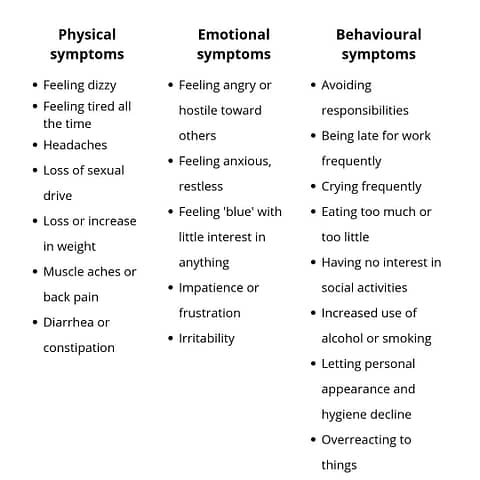Anxiety is a natural part of life, especially during the teenage years when everything seems to be changing so quickly. School pressures, social dynamics, family expectations, and the uncertainty of the future can all contribute to feelings of anxiety. But when that anxiety becomes overwhelming or constant, it can interfere with your daily life. Understanding anxiety and learning how to cope with it is crucial for maintaining your mental health and well-being.
What Is Anxiety?
Anxiety is a feeling of worry, nervousness, or fear about something that might happen. It’s your body’s natural response to stress, often referred to as the “fight or flight” response. While everyone experiences anxiety from time to time, it becomes a problem when these feelings are persistent, intense, and start to affect your everyday life. For teens, anxiety can manifest in different ways. You might feel anxious about a big test, a sports event, or even a social situation like attending a party. These feelings are normal, but if you find yourself constantly worrying or avoiding certain situations because of your anxiety, it might be time to address it.
Recognizing the Signs of Anxiety

Understanding anxiety starts with recognizing the signs. Here are some common symptoms of anxiety that teens may experience:
• Physical Symptoms: Rapid heartbeat, sweating, trembling, dizziness, or headaches.
• Emotional Symptoms: Feelings of dread, panic, or a sense of impending doom.
• Behavioral Symptoms: Avoiding situations that trigger anxiety, difficulty concentrating, or restlessness.
• Cognitive Symptoms: Overthinking, excessive worrying, or an inability to focus on anything other than the source of your anxiety.
If you notice these symptoms occurring frequently or interfering with your daily activities, it’s important to acknowledge them and take steps to manage your anxiety.
Strategies to Cope with Anxiety
While anxiety can feel overwhelming, there are several strategies you can use to manage it effectively. Here are some tips that might help:
1. Practice Deep Breathing: When you start to feel anxious, take a few moments to focus on your breathing. Inhale slowly through your nose, hold it for a few seconds, and then exhale slowly through your mouth. This simple technique can help calm your nervous system and reduce the physical symptoms of anxiety.
2. Stay Active: Regular physical activity is one of the best ways to reduce anxiety. Exercise releases endorphins, which are natural mood boosters. Whether it’s going for a run, playing a sport, or even dancing around your room, moving your body can help alleviate anxious feelings.
3. Create a Relaxation Routine: Incorporate relaxation techniques like yoga, meditation, or listening to calming music into your daily routine. These activities can help you unwind and reduce the buildup of stress.
4. Challenge Negative Thoughts: Anxiety often stems from irrational or negative thoughts. When you notice yourself thinking “what if” or imagining the worst-case scenario, try to challenge those thoughts. Ask yourself if there’s evidence to support them or if you’re blowing things out of proportion.
5. Talk to Someone You Trust: Sometimes, simply talking about your worries can make them feel more manageable. Reach out to a friend, family member, or counselor who can offer support and perspective.
6. Limit Caffeine and Sugar: What you eat and drink can impact your anxiety levels. Caffeine and sugar can increase feelings of jitteriness and nervousness, so it’s a good idea to limit your intake.
7. Set Realistic Goals: Setting small, achievable goals can help you feel more in control and less overwhelmed. Break tasks down into manageable steps and celebrate your progress along the way.
8. Get Enough Sleep: Lack of sleep can exacerbate anxiety. Make sure you’re getting 7-9 hours of sleep each night to help your body and mind recharge.
9. Avoid Avoidance: While it might seem easier to avoid situations that make you anxious, this can actually make anxiety worse over time. Face your fears gradually and with support if needed.
10. Seek Professional Help: If your anxiety is severe or persistent, it might be time to talk to a mental health professional. Therapists can offer strategies and coping mechanisms tailored to your specific needs.
Final Thoughts
Anxiety is a common experience, especially during the teenage years, but it doesn’t have to control your life. By recognizing the signs and implementing effective coping strategies, you can manage your anxiety and live a more balanced, fulfilling life. Remember, it’s okay to ask for help, and taking care of your mental health is just as important as taking care of your physical health.
If you’ve read this far and find yourself resonating with the challenges of anxiety, please know that I’m here to help. I’m passionate about providing personalized support and strategies to help you manage your anxiety and reclaim a sense of balance in your life. If you’re a new client and curious about how therapy could benefit you, I invite you to book a free 30-minute consultation. It’s a chance for us to connect, discuss your concerns, and explore how we might work together. Existing clients, or anyone ready to schedule a session, can contact me directly via call/text at . Don’t hesitate to reach out—taking that first step can make a world of difference.


